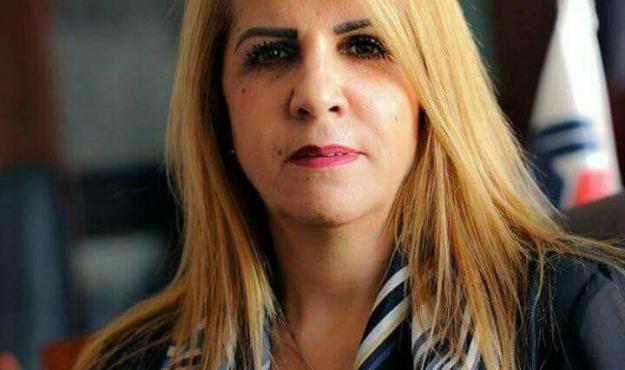Interview with Mrs Saida Neghza, CGEA's President
Interview with Mrs Saida Neghza, CGEA's President
(Q1) Can you give us a short presentation of CGEA?
"The General Confederation of Algerian Enterprises was created in 1989 as the first employers' organisation bringing together its members through national structures organized by "wilaya" and by sector of activity.
The C.G.E.A is an independent employers' organisation, bringing together most private companies that create wealth, it is respected by its representativeness and recognized as the privileged interlocutor of the government, and the social partners, through the constancy of its credible positions for the defense of the enterprise and the market economy. The organisation also participates in the definition of national economic and social policy, and at the highest level dialogues between employers/government for the implementation of economic and social policies. »
(Q2) The Algerian economy has always been very dependent on hydrocarbons. now that the country is looking at diversifying its development, what are the priorities?
“Algeria has adopted a model of economic growth oriented towards a dynamic of development and enhancement of investment and business, a form of financing of the economy hinging in particular on market resources and the multiple forms of savings available. This model aims to consolidate the development of priority sectors including Industry in particular the petrochemical ones, the automotive industry, the agri-food, Agriculture, sustainable tourism, Renewable energy and a Service Economy in support of the development of Information and Communication Technologies and Research and Development.”
(Q3) Algeria has imposed taxes and restrictions on imports in recent years. Are there changes taking place at the fiscal and customs levels? Can you give us some examples?
The Algerian authorities have introduced new taxes for a selection of imported finished products for which there is no added value for Algeria. These taxes aim to promote local production, encourage relocation and synergistic partnerships, and increase the flexibility of national economic operators to ensure a more diversified economy. These short-term measures have no impact on the factors of production and concern mainly products for which the local market can meet the needs of consumers. These are safeguards that do not penalize productive investment. A revealing index is illustrated by the fact that private-sector tax revenues have exceeded those of the hydrocarbon sector; Algeria has begun to export cement and steel, but also manufactured products."
(Q4) Are there reforms to encourage foreign investment in Algeria?
Indeed, these reforms aim to promote local production and offer greater visibility to foreign investors. The improvement in the business climate and better access to productive investments in goods and services are among the priorities of the government. Partnership and relocation are a necessity for Algeria. The procedures and authorizations related to the investment are decentralized; in this sense, the accompaniment to the investors by the local operators can provide a considerable impulse. Furthermore, the extension and strengthening of the already active industrial areas, with the collaboration of the local economic operators, would make it possible to regulate issues related to industrial property.
It is also necessary to point out how the maintenance of the tax benefits outlined in the Investment Code in favor of foreign investors has been highlighted, despite the proven difficulties in the economic situation as well as the measures to encourage investment for the projects carried out in the "wilayas" from the south to the north of the country.
(Q5): What roles can employers' organizations play in the development of the region?
“The private sector is lagging behind and must be an integral part of the Mediterranean area economic development. The ties between the countries of the Mediterranean basin constitute a basis of wealth strengthening economic relations between the countries. The role of employers' organisations has now moved beyond business to support peace and sustainable development in the region. The visibility that business support organisations and employers' organisations provide to operators represents an opportunity for cooperation and coordination in everything that encourages the expansion of economic projects that create wealth. Such organisations represent a direct platform for the promotion of foreign direct investment and a tool for the promotion of Mediterranean social dialogue and economic integration. The activities developed by these organisations aim to stimulate trade and reduce the economic gap between the countries of the South and the North of the Mediterranean, as well as exchanges of expertise and good practice.”










